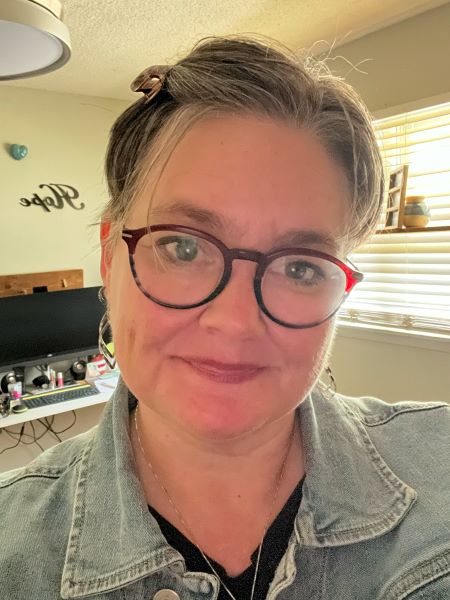by Hope
Some of the creators (bloggers as I’ve mostly gotten off social media personally) have recently begun starting or trying to start new routines in their lives. Many are for health benefits, some for work schedules, and I had the idea that this would probably work for me as I am nothing if not driven by routine and lists and schedules. What do you think?
I’ve been reading a bit about it:
- James Clear’s article “How to Build New Habits by Taking Advantage of Old Ones” gives a scientific type introduction.
- S.J. Scott wrote a whole book about it, you can find it here on Amazon – Habit Stacking: 127 Small Changes to Improve Your Health, Wealth, and Happiness <-NOT an affiliate link or find it at your local library
- Reddit commentors seem to agree that is can be a life changing process and offer recommendations for other books.
- “Habit Stacking Makes New Habits Last—Here’s How It Works” on Real Simple really broke down how to start with step by step directions and tips.
- The “The 9 Best Habit-Stacking Combos for Forming New Wellness Routines” article provides a list of basic ones to start with. There weren’t really applicable to me, but some might find them inspiring.
Eight Elements of Habit Stacking
According to S.J. Scott (reference above), there are several elements to a habit stacking routine:
- Each habit takes less than five minutes to complete.
- It’s a complete habit.
- It improves your life.
- It’s simple to complete.
- The entire routine takes less than 30 minutes.
- It follows a logical process.
- It follows a checklist.
- It fits your life.

My favorite aritcle of the ones I read was this one “Habit Stacking: 17 Small Productivity Habits” on the FS blog.
How to Apply to Me and My Finances
I am nothing if not a creature of habit. So, of course, I returned to Google to help me find specific examples of Habit Stacking for Finance. This was the most robust list I found “How to Habit Stack Your Finances“. I also appreciate this article by Chihee Kim especially how she focused on learning and retaining more about financial literacy. Every time I learn something, and really get it, I just realize how ignorant I am about finances.
Now I’ve got to do the work. I’ve going to follow the steps outlined in this article (listed above as well) and begin this journey.
Have you used Habit Stacking in any aspect of your life? Did you find it beneficial? And were you successful at you achieving your goal?

Hope is a resourceful and solutions-driven business manager who has spent nearly two decades helping clients streamline their operations and grow their businesses through project management, digital marketing, and tech expertise. Recently transitioning from her role as a single mom of five foster/adoptive children to an empty nester, Hope is navigating the emotional and practical challenges of redefining her life while maintaining her determination to regain financial control and eliminate debt.
Living in a cozy small town in northeast Georgia with her three dogs, Hope cherishes the serenity of the mountains over the bustle of the beach. Though her kids are now finding their footing in the world—pursuing education, careers, and independence—she remains deeply committed to supporting them in this next chapter, even as she faces the bittersweet tug of letting go.
Since joining the Blogging Away Debt community in 2015, Hope has candidly shared her journey of financial ups and downs. Now, with a renewed focus and a clear path ahead, she’s ready to tackle her finances with the same passion and perseverance that she’s brought to her life and career. Through her writing, she continues to inspire others to confront their own financial challenges and strive for a brighter future.


This reads like a post just to generate clicks. Disappointing.
I’m not sure if I should take that as a compliment or not. This truly is my thought process right now.
I’ve already established relatively healthy routines around my health over the years, so my thought is if I could identify some healthy financial habits/safeguards, it would be a powerful way to stick to them.
if you are really serious about this the healthiest financial habit you could ever establish would be an actual written out BUDGET. i have been reading this website since you first began blogging here. over the years so many people have tried over and over to give you good financial advice and have begged you to do this. have simply brushed it off as if you know better. but you don’t or you would not still be in debt.
I have always forecasted/budgeted out my spending a year at a time.
While it may not look like a traditional budget, I live by that “budget” or plan for where every dollar is going each month.
It’s reviewed every day. Updated about quarterly unless something major changes. And let’s me see exactly where every dollar is needed for the foreseeable future.
I’ll try to put it in a traditional budget format for you to see, but believe me, I have a budget and I stick to it.
I’m confused by this post. I’m familiar with habit stacking but what exactly are YOU going to do? What are some specific examples of habits you’re trying to change/stack?
My thought was to identify some healthy financial habits and safeguards and then work on adding them to routines I already have established?
That’s the post you should have written. You know, something with some depth to it instead of just regurgitating other people’s writing online.
It was more an educational post for those, like myself, who had never heard of habit stacking. And weren’t sure how it works.
I’m still trying to layout a plan for the finance related habits that would make sense for me.
Recommendations welcome.
Here is your post. “Hey have you ever heard of habit stacking? The principles, as outlined by these people, are as follows: ….”
What would have been useful: “Hey have you ever heard of habit stacking? The principles, as outlined by these people, are as follows: …. Here’s how I am going to implement them in my financial life: ….” Your post is just rehashing other people’s ideas instead of bothering to write anything new or fresh. I can’t believe you think you’re a good writer.
Yes, I know what I wrote and why I wrote it as I was learning about habit stacking.
I never said I was a good writer. In fact, most of the time, I will say I speak better computer language then English. I am not good with people either. I lack self confidence. there are so, so many things I just SUCK at.
But thanks for your feedback. Always appreciated.
And I’m sorry for whatever your going through that would make you be cruel to a stranger on the internet.
But this is why we can’t determine what you are exactly doing. There are old budgets, that if followed, would have paid off debt. And there is no budget update saying your planned amount to Princess or for any health expenses.
So in reality, it’s not real numbers.
But this is why we can’t determine what you are exactly doing. There are old budgets, that if followed, would have paid off debt. And there is no budget update saying your planned amount to Princess or for any health expenses.
Honest question- when you review your budget daily, are you just reviewing what you WANTED to spend in a category and not looking at what you DID spend? I review mine daily generally and there is no way an unbudgeted 700 amazon purchase would have happened; I’d have seen that, wondering what in the hell I was thinking, and canceled the order.
Maybe a service like Monarch money would help? You input your budget, and it keeps track of what you really did spend, not just what your “forecast” was. If you start to go over any category, or are not keeping up with debt payment goals, you are immediately aware of it.
It also keeps track of whether you actually made the income you forecasted, and makes it hard to forget to budget for those things we never see in your budgets- health care, retirement, etc.